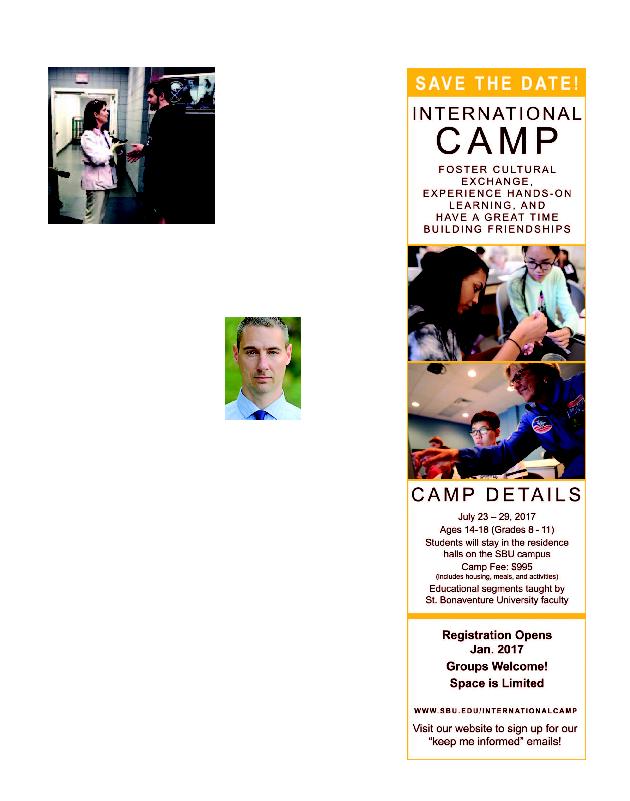
N
2
1
Twitter. Instagram and Snapchat also are
ancillary tools she employs to add video
and other digital components to her
coverage.
telling, but in a different format. One of
the things I've always valued about my
Bonaventure education is I've learned
how to be a good journalist and a good
writer, and those were things that trans-
lated. It's just about learning a new
gizmo."
moritz.com, where she chronicles her
running pursuits and raises money for
the homeless.
questions the wisdom of offering free
online content, an overwhelmingly com-
mon practice, for the sake of reaching
eyes and being relevant in 21st century
sports writing. It's a return-on-investment
thing, he says.
where you give it away for free," says
Dybas, '99. "Then everyone comes and
gets the free ketchup, and you wonder
why you're not making any revenue and
you're losing money. Applying the con-
cept that we use in journalism to any
other business model ... people would
look at you like you're a maniac."
as wide receiver Golden Tate signed with
the Detroit Lions.
where the ad revenue-generating clicks
on the page it was posted exponentially
surpassed the original story.
vated (with Tate) for three years that re-
sulted in exclusive content," says Dybas,
now the Washington Nationals beat
writer with the Washington Times.
narowski says.
links to stories while wary of aggregate
websites reaping financial benefits from
of the job, he says.
alty as the Seattle
Post-Intelligencer's
print operation
closed in 2009
during the Great
Recession. Out of a
job -- although re-
porting as a
stringer led to op-
portunities later --
he turned to mak-
ing apps, for which
tent access. If newspapers are to survive,
apps are a route to revenue, he says.
site -- Wojnarowski respects newspa-
pers' troubles as he leads national pro
hoops coverage with online-streaming
draft and free agency specials, podcasts
and breaking news videos. During the
2011 NBA draft, relying on what he calls
"everyday reporting," Wojnarowski
called half of the first-round picks on
Twitter before the ESPN broadcast an-
nounced them.
wrong."
Follow him on Twitter, @KelseyMBoudin)
a sports enterprise
writer with the
Washington
Times.
player Patrick Kaleta, who spent parts of
nine seasons with the Buffalo Sabres.